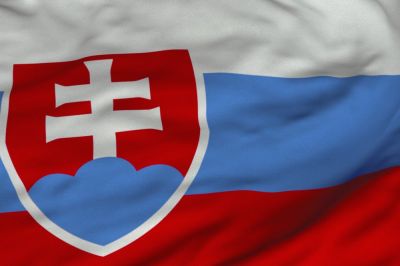
The Higher Education Act distinguishes the higher education institutions from various views. From the point of view of the system of funding and ownership the higher education institutions are divided into the public, state-owned and private higher education institutions. Besides, the higher education may be also provided by foreign higher education institutions.
As at 1st January 2011, there were 20 public higher education institutions, three state-owned higher education institutions, twelve private higher education institutions, and four foreign higher education institutions functioning in the Slovak Republic.
The public higher education institutions are funded especially by the subsidies provided from the Chapter of the Ministry of Education, Science, Research and Sport of the SR on the basis of a contract but they have also additional revenues, such as tuition fees and payments connected with the study, entrepreneurial activities, property revenues, provision of continuous education, and the like. The public higher education institutions are autonomous and self-governing and managed by self-governing bodies according to internal rules of the higher education institutions.
The state-owned higher education institutions are police, military and healthcare institutions. Police higher education institutions fall within the competence of the ministry of the interior and prepare their graduates especially for the needs of the Police Corps and security services. Military higher education institutions fall within the competence of the ministry of defence and prepare their graduates especially for the needs of armed forces, since the academic year 2012/2013 renewing the studies for civilians. Healthcare higher education institutions prepare especially the graduates who will perform health professions. The state-owned higher education institutions compared to the public ones have some rights limited to a diverse scope, at individual types of the state higher education institutions. For example, some state-owned higher education institutions are not autonomous at defining number of admitted applicants, preparing study programmes, and at creating organisation structure and are subject of agreement of the corresponding ministry. The state-owned higher education institutions are linked by their budget to the State budget as a contributory or budgetary organisation of the respective Chapter. The fields of study offered by the state-owned higher education institutions are not exclusively designed for them, the study programmes in the given fields of study may be also provided, upon fulfilling the conditions of accreditation, by public and private higher education institutions.
The private higher education institutions are non-profit-making organisations offering generally useful services or limited liable companies which were founded with the purpose of providing education and research. The State consent for operation as a private higher education institution is granted by the Government of the SR. The Accreditation Commission pronounces on the request for giving the consent. The private higher education institutions may be also granted a subsidy for its activity from the state budget but actually they receive only the funds for covering statutory claims of the students.
The foreign higher education institutions which want to operate on the territory of the SR and come from a member country of the European Union may provide education according to legislation of the State of their place of residence. In that case a majority of provisions of the higher education act do not apply to the institutions and their operation requires ministry’s authorisation. For its granting a positive statement of the authority according to the seat of the higher education institution is a must.
The Higher Education Act divides the higher education institutions into university-type and professional higher education institutions. There are also higher education institutions that do not fall under this classification. The classification of a higher education institution or its transfer is carried out on the basis of a statement of the Accreditation Commission of the SR, in case of public and State-owned higher education institutions on the basis of the act and, in case of private higher education institutions, the transfer of an institution is upon the SR Government.
In agreement with the Higher Education Act all higher education institutions provide the Bachelor study programmes. The professional higher education institutions provide the Bachelor’s study programmes only. The professional higher education institutions are oriented particularly on the applied research. In case of university higher education institutions the primary orientation is at basic research and emphasis is laid on doctoral study programmes.
The doctoral study programmes may be also provided by external educational institution. In that case the research part of the doctoral study is carried out in the external educational institution, however, the student is a student of higher education institution but some aspects of his study are decided or co-decided by the external educational institution.